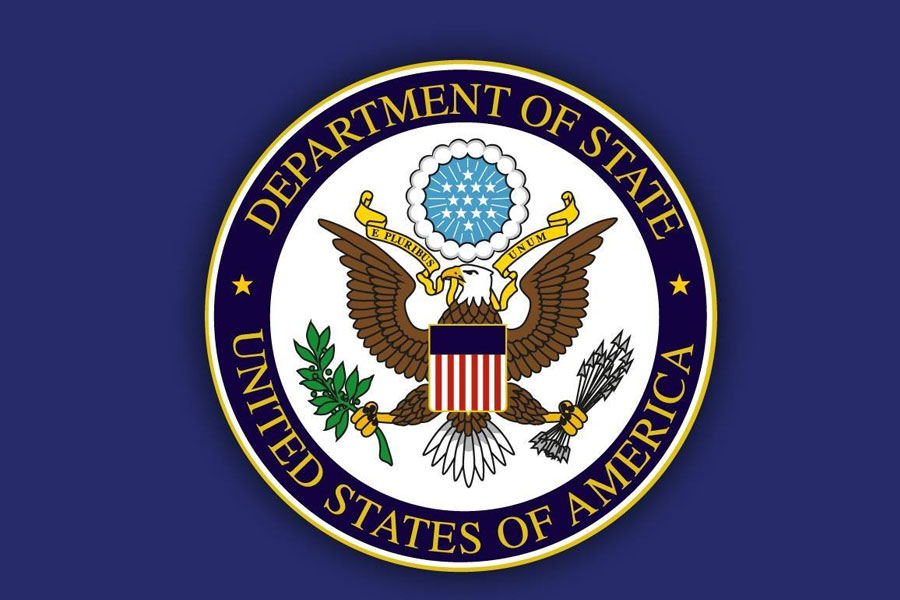
Jun 15 , 2019
By Eyobed Tibebu Lisanework
Accountability is a key requirement of good governance. Not only governmental institutions but also the private sector and civil society organisations must be accountable to the public, argues Eyobed Tibebu Lisanework, who holds BA and LLB degrees. He works as a freelance trainer and advisor in insurance and management.
The terms “governance” and “good governance” are being increasingly used in literature and over the media. Bad governance is regarded as one of the root causes of all evil within societies.
In fact, the root causes of all evils are jealousy, hatred, greed and other negative emotions. People should avoid them totally and keep their expectations to minimum, to lead a happy and stress-free life.
Apparently, major donors and international financial institutions, perhaps except China, are increasingly basing their aid and loan grants on the condition that reforms that ensure “good governance” are undertaken.
Good governance has eight major characteristics. It is, participatory; consensus oriented; accountable; transparent; responsive; effective and efficient; equitable and inclusive; and follows the rule of law.
It assures that corruption is minimized if not totally eradicated. The views of minorities are taken into account, and the voices of the most vulnerable in society are heard in decision-making. It is also responsive to the present and future needs of society following the avenue toward sustainable development.
Thus, in government leadership roles, accountability is the acknowledgment and assumption of responsibility for actions such as products, decisions, and policies. This includes administration, governance and implementation within the scope of the role of the position. It encompasses the obligation to report, explain and be answerable for resulting consequences.
Accountability of government is stipulated in the 1994 Ethiopian Constitution. Transparency, sanction and recall are the three basic and important purposes underscored in the Constitution.
The advantage of transparency is that it creates harmonized relationships between the government and the people governed. Transparency means that decisions are taken and their enforcement done in a manner that follows rules and regulations.
It also means that information is freely available and directly accessible to those who are affected by such decisions and their enforcement. It requires that enough information be provided in easily understandable forms and media.
This goes a long way in creating a harmonious society. If there is a harmonious relationship between the government and the people, it means that trust and confidence is created to work, live and let live. If the government and the people governed are hands and gloves, they work together concertedly with minimum antagonistic motives and the country will develop socially, culturally and economically.
Sanctioning illegal behavior is a responsibility the Constitution puts on the shoulders of government. Unacceptable execution of responsibility and authority due to deliberate flouting of policies, rules and regulations should not be tolerated. Corruption or exceeding the limits of decision-making authority should alert the government to take its sanctioning responsibility seriously. Government officials have to discharge their responsibilities and exercise their authority in a manner acceptable to all citizens.
Recall by the people when they lose confidence over their elected representatives is a safety valve; so that elected persons would not hang around until their term of mandate is expired. This will again alert the elected persons that at any time when confidence is lost over them the people can impeach them by exercising their sovereign power.
While accountability has many such advantages, I would argue that it has no disadvantages whatsoever. Accountability is a key requirement of good governance. Not only governmental institutions but also the private sector and civil society organizations must be accountable to the public and to their institutional stakeholders. Who is accountable to whom varies depending on whether decisions or actions taken are internal or external to an organization or institution. In general, an organization or an institution is accountable to those who will be affected by its decisions or actions. Accountability cannot be enforced without transparency and the rule of law.
From the above point of view, it should be clear that good governance is an ideal which is difficult to achieve in its totality. Very few countries and societies have come close to achieving good governance in its totality.
Most of the ingredients of good governance which work in concert are especially difficult to implement in developing countries. Mainly African countries have struggled to implement accountability according to the letter of the law and the aspirations of citizens.
Concepts of democracy, such as transparency, accountability and rule of law should not be merely constitutional theories. Rather, to ensure sustainable human development, actions must be taken to work toward these ideals with the aim of making them a reality. It should not, however, be overlooked that good government requires good people.
PUBLISHED ON
Jun 15,2019 [ VOL
20 , NO
998]


View From Arada | Jul 02,2022

Films Review | May 18,2019

Viewpoints | Oct 02,2021

Verbatim | Jan 18,2019

Commentaries | Apr 06,2024

My Opinion | Apr 02,2022

Verbatim | Sep 24,2022

Fortune News | Aug 02,2025

My Opinion | Dec 04,2021

Viewpoints | Jul 27,2019

Photo Gallery | 178007 Views | May 06,2019

Photo Gallery | 168216 Views | Apr 26,2019

Photo Gallery | 158962 Views | Oct 06,2021

My Opinion | 137038 Views | Aug 14,2021
Commentaries | Oct 25,2025

Dec 22 , 2024 . By TIZITA SHEWAFERAW
Charged with transforming colossal state-owned enterprises into modern and competitiv...

Aug 18 , 2024 . By AKSAH ITALO
Although predictable Yonas Zerihun's job in the ride-hailing service is not immune to...

Jul 28 , 2024 . By TIZITA SHEWAFERAW
Unhabitual, perhaps too many, Samuel Gebreyohannes, 38, used to occasionally enjoy a couple of beers at breakfast. However, he recently swit...

Jul 13 , 2024 . By AKSAH ITALO
Investors who rely on tractors, trucks, and field vehicles for commuting, transporting commodities, and f...

Oct 25 , 2025
The regulatory machinery is on overdrive. In only two years, no fewer than 35 new pro...

Oct 18 , 2025
The political establishment, notably the ruling party and its top brass, has become p...

Oct 11 , 2025
Ladislas Farago, a roving Associated Press (AP) correspondent, arrived in Ethiopia in...

Oct 4 , 2025
Eyob Tekalegn (PhD) had been in the Governor's chair for only weeks when, on Septembe...

Oct 25 , 2025 . By YITBAREK GETACHEW
Officials of the Addis Abeba's Education Bureau have embarked on an ambitious experim...

Oct 26 , 2025 . By YITBAREK GETACHEW
The federal government is making a landmark shift in its investment incentive regime...

Oct 27 , 2025
The National Bank of Ethiopia (NBE) is preparing to issue a directive that will funda...

Oct 26 , 2025 . By SURAFEL MULUGETA
A community of booksellers shadowing the Ethiopian National Theatre has been jolted b...